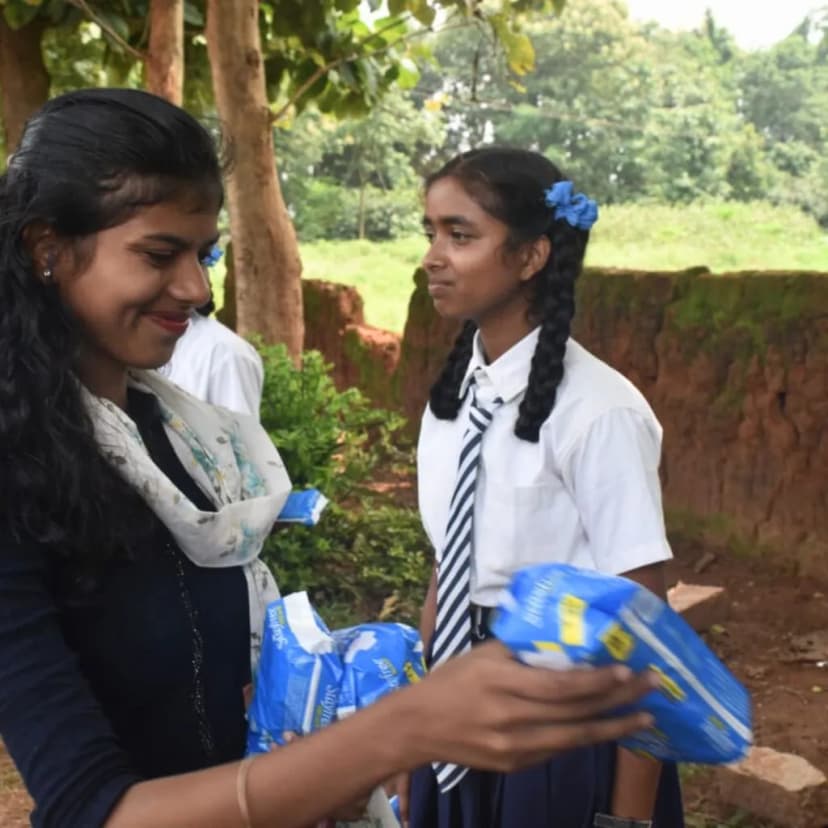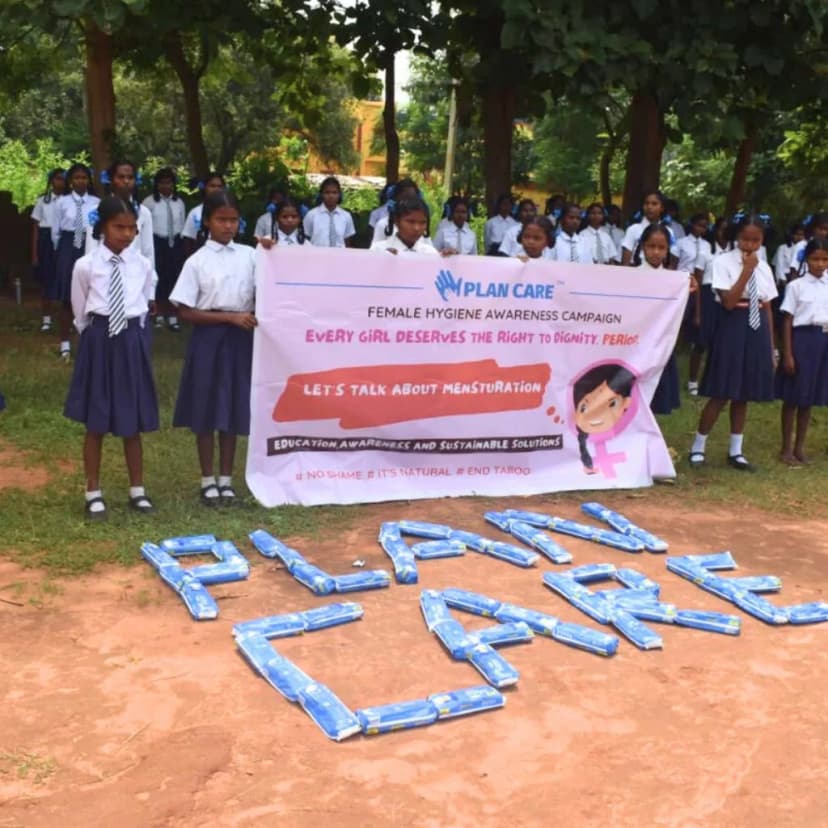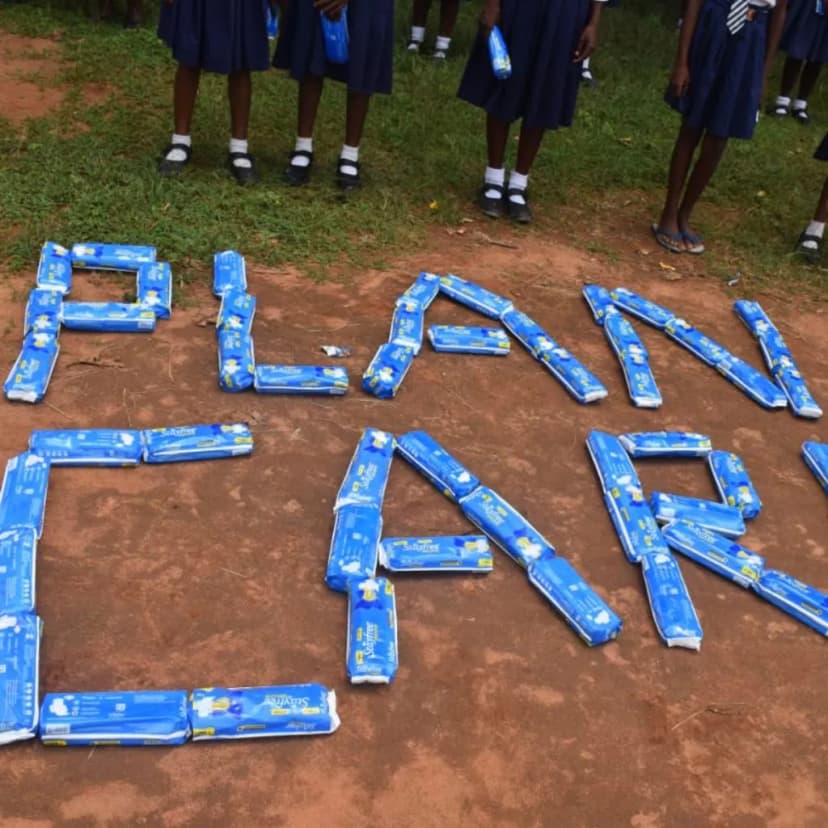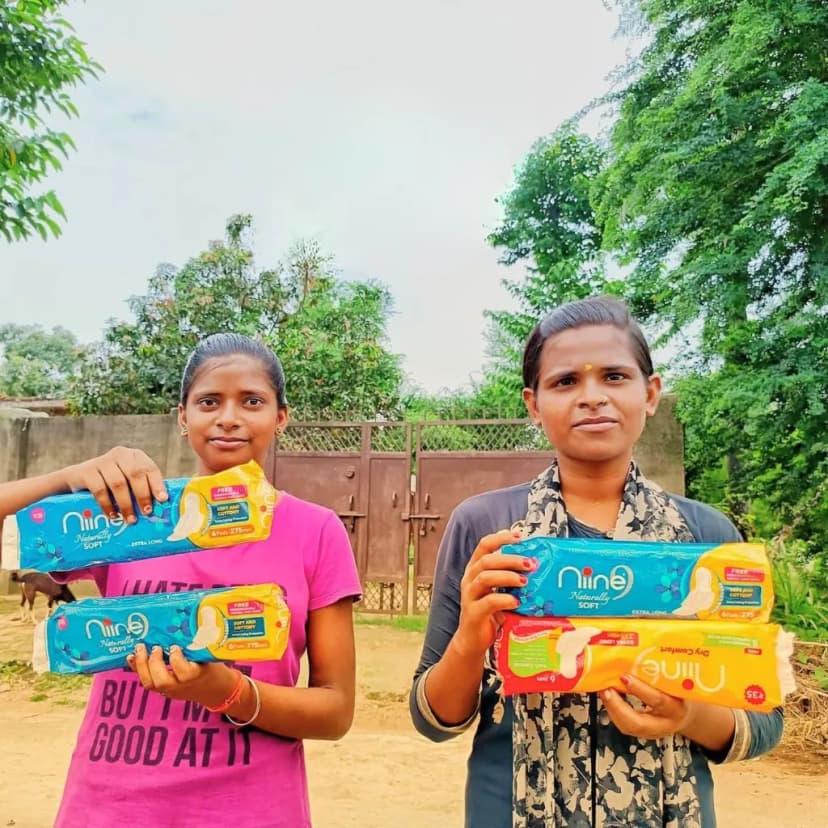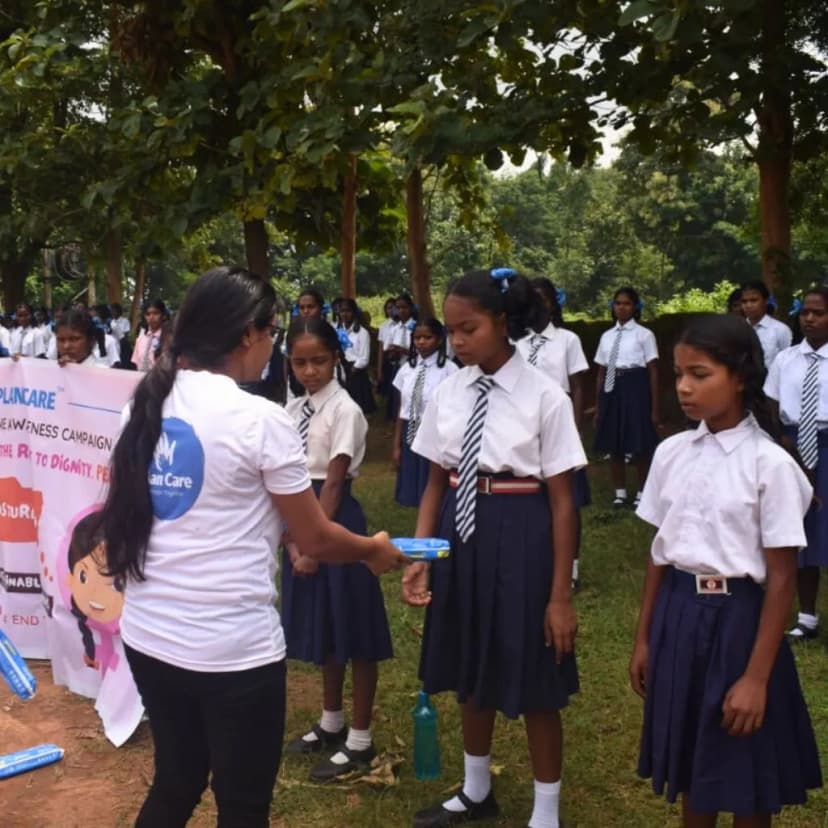Menstrual Hygiene & Free Sanitary Pads Distribution
Breaking barriers to menstrual hygiene through education, free sanitary pad distribution, and stigma reduction for underprivileged women and girls across rural India.

Breaking the Silence on Menstrual Hygiene
Confronting period poverty and social stigma in rural India

In India, menstruation remains shrouded in silence and stigma, with over 71% of girls unaware of menstruation before their first period. PlanCare's Red Dot Campaign directly addresses this crisis through comprehensive menstrual literacy programs and sanitary pad distribution in underserved communities.
With approximately 500 million women worldwide lacking access to proper menstrual products and private spaces, the issue is particularly acute in rural India where 50% of women use unhygienic alternatives to manage their periods, leading to severe health risks including reproductive tract infections.
Our initiative not only focuses on providing free eco-friendly sanitary products to those who cannot afford them (70% of Indian women) but also works to dismantle harmful social taboos that keep 23% of adolescent girls out of school permanently once they begin menstruating.
The Red Dot Campaign: Education & Distribution
Comprehensive approach to menstrual health and dignity
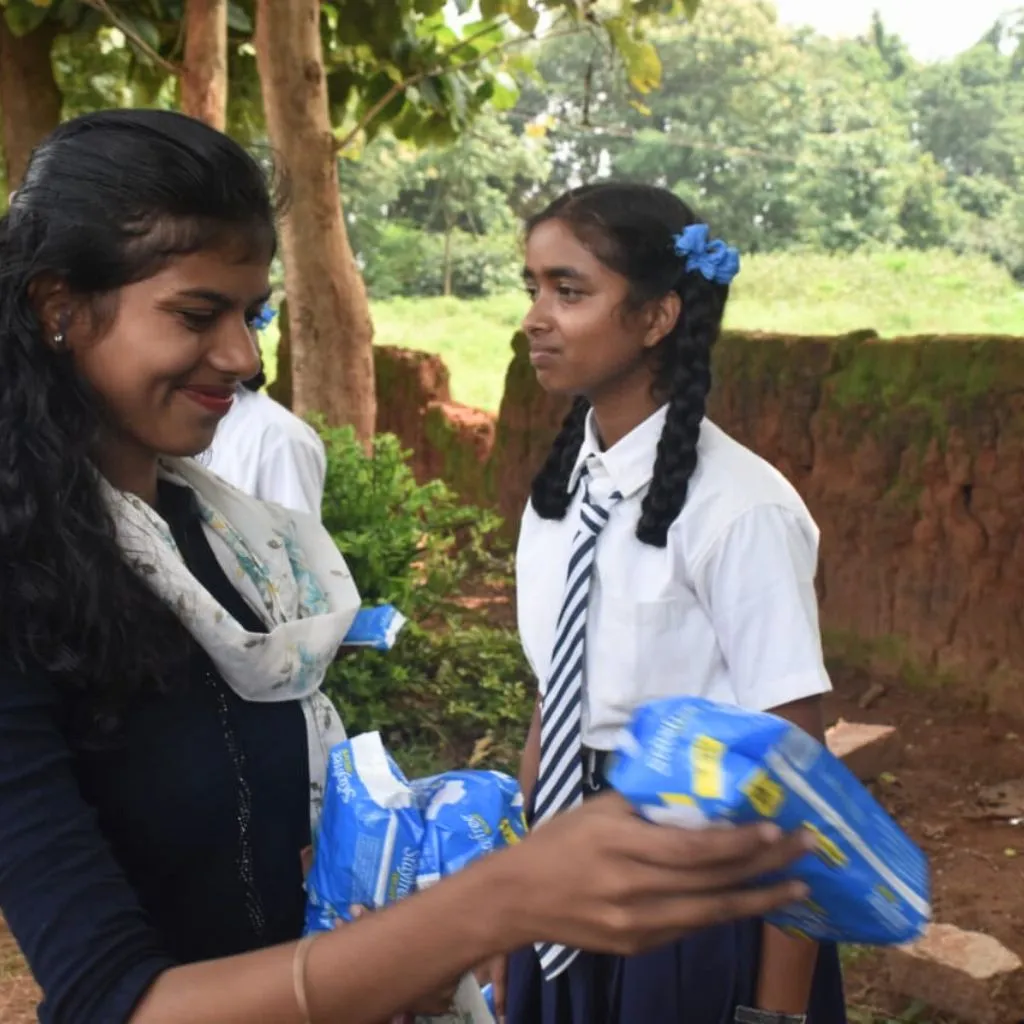
PlanCare's Red Dot Campaign represents a multi-faceted approach to menstrual health management in rural communities. Our dedicated volunteers conduct regular visits to village schools, organizing interactive workshops that provide essential education on proper menstrual hygiene practices and reproductive health.
Beyond education, we address the critical accessibility gap by distributing free sanitary napkins to thousands of girls, ensuring they have the resources needed to manage their periods safely and with dignity. This practical intervention has led to a documented 40% increase in school attendance among adolescent girls in our target areas.
Each distribution includes eco-friendly sanitary products along with informative materials that help girls better understand their bodies and gently challenge the stigma surrounding menstruation—a belief still held by many due to cultural misconceptions.
Rural School Outreach Program
Taking menstrual hygiene education directly to village classrooms
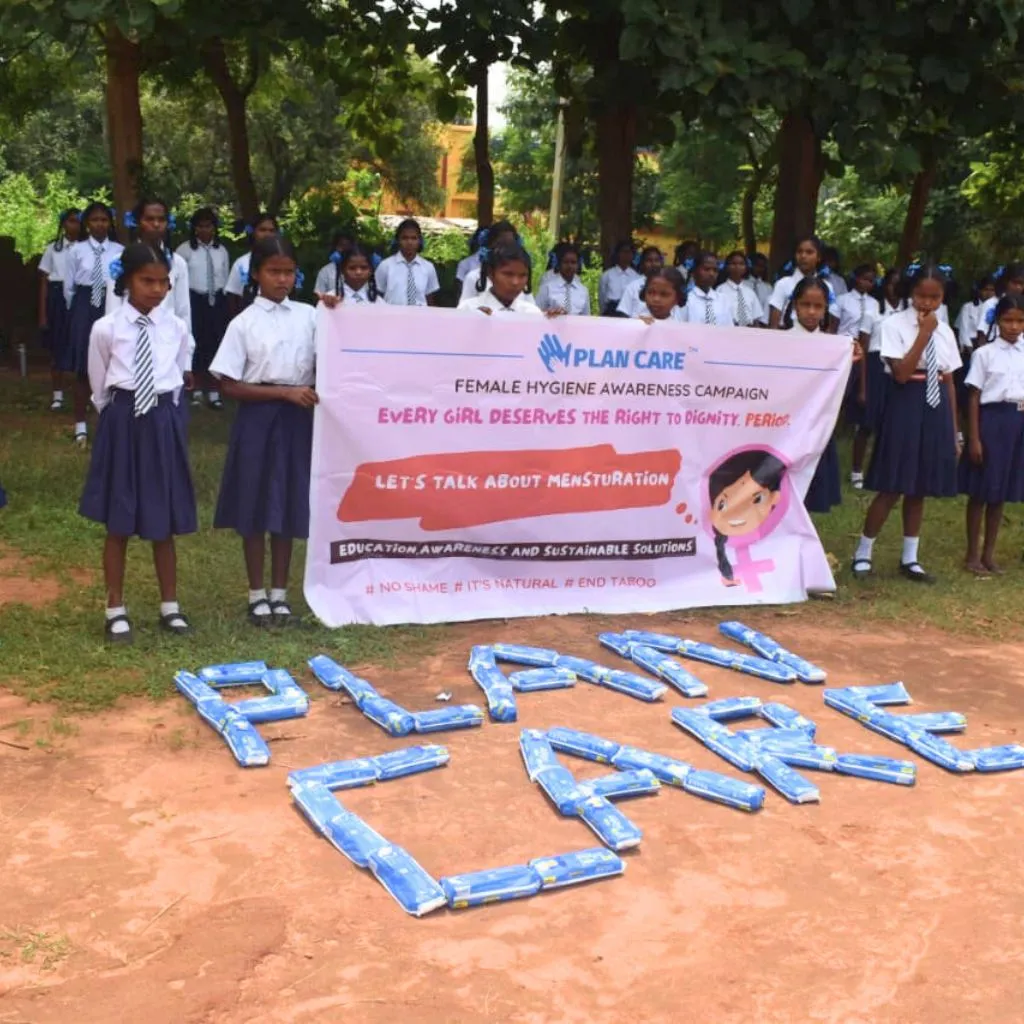
PlanCare's approach to rural schools is systematic and culturally sensitive, with trained volunteers traveling to remote educational institutions where the need is greatest. By directly entering these underserved school environments, we reach girls who would otherwise have no access to menstrual health information or products.
Our school outreach program begins with establishing relationships with headmasters and female teachers, creating trusted partnerships that facilitate open discussions on this traditionally sensitive topic. Workshops are designed for the specific context of each village, addressing local taboos and practices while providing universal health information.
The impact of our direct school approach has been transformative—in villages where PlanCare operates, teachers report dramatically reduced absenteeism among female students. With dedicated menstrual hygiene corners now established in over 50 rural schools, girls have access to emergency products and private spaces for managing unexpected periods during school hours.
Menstrual Health Education: Building Knowledge
Empowering through accurate and timely information
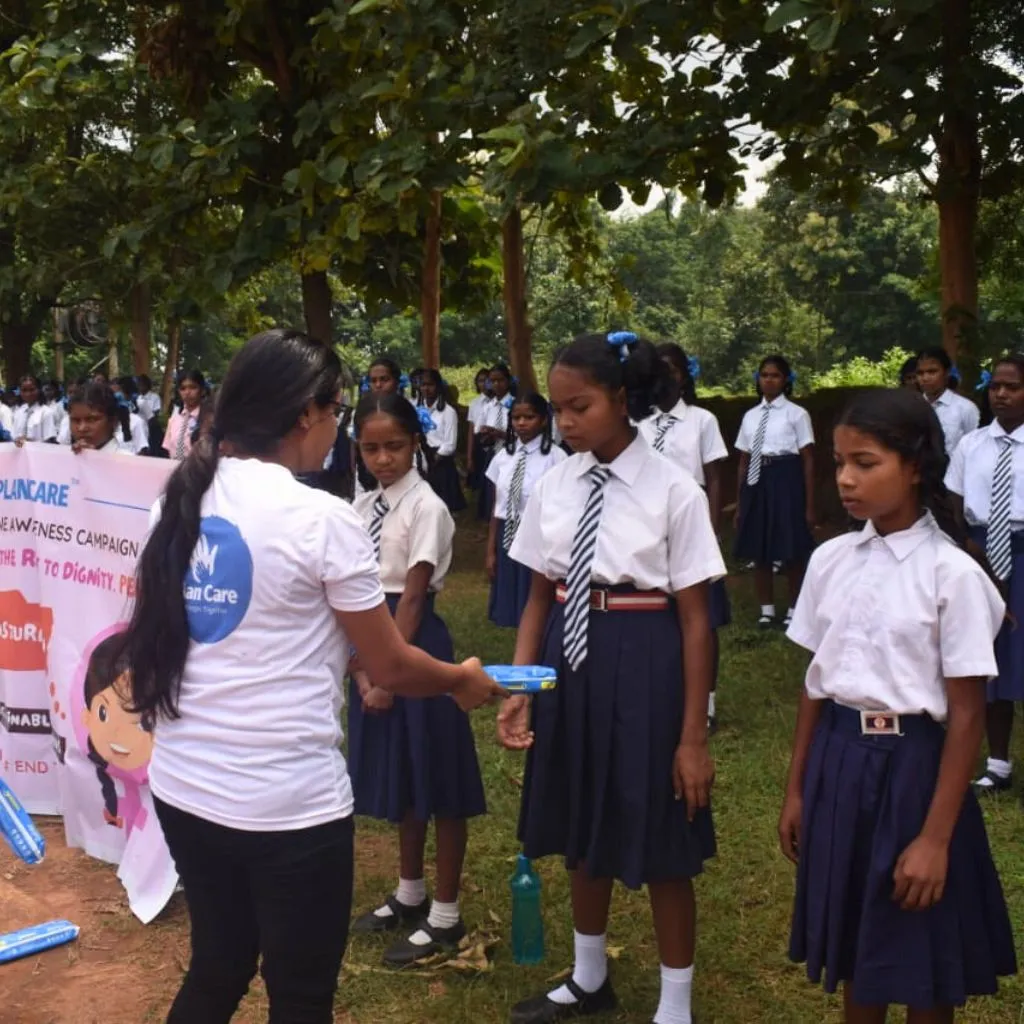
Our comprehensive menstrual health education program addresses the critical information gap that leaves most adolescent girls unprepared for menstruation. Through age-appropriate, culturally sensitive workshops, we've achieved a 65% increase in menstrual health knowledge among participants in rural communities.
PlanCare's educational approach goes beyond basic hygiene to include biological understanding, nutritional needs during menstruation, and environmentally responsible product disposal. We create safe spaces where girls can ask questions and receive accurate information, countering the misinformation that often comes from conflicting sources.
Recognizing that lasting change requires community-wide understanding, our programs also engage teachers, mothers, and importantly, boys and men. This inclusive approach helps create supportive environments where menstruation is understood as a natural process rather than a source of shame or limitation.
Fighting Period Poverty: Access to Sanitary Products
Ensuring no girl misses school due to menstruation
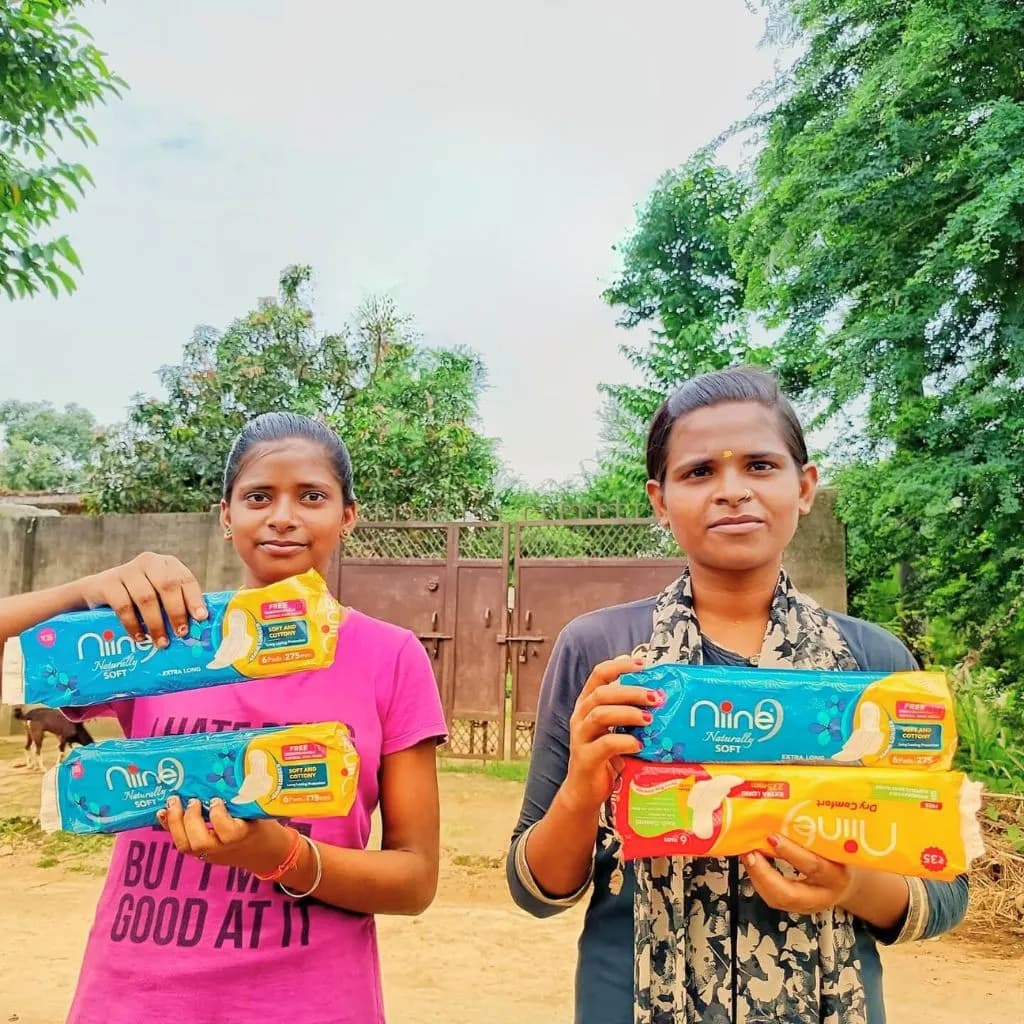
Period poverty affects millions of Indian women, with studies showing over 70% cannot afford commercial sanitary products. Our distribution program directly addresses this economic barrier by providing free, high-quality sanitary pads to girls in underserved communities, reaching over 1,000 beneficiaries annually.
Each girl receives sufficient supplies to manage her periods for a full year, eliminating the monthly financial stress that forces many to resort to unsafe alternatives like rags, ash, or sand. Our products are specially selected for comfort, reliability, and environmental sustainability, prioritizing both user health and ecological responsibility.
The impact extends beyond physical health—with reliable access to sanitary products, girls report increased confidence, consistent school attendance, and greater participation in social and sports activities during menstruation. This comprehensive approach transforms not just health outcomes but educational and social opportunities as well.
Breaking Taboos: Community Engagement
Creating supportive environments for menstrual dignity
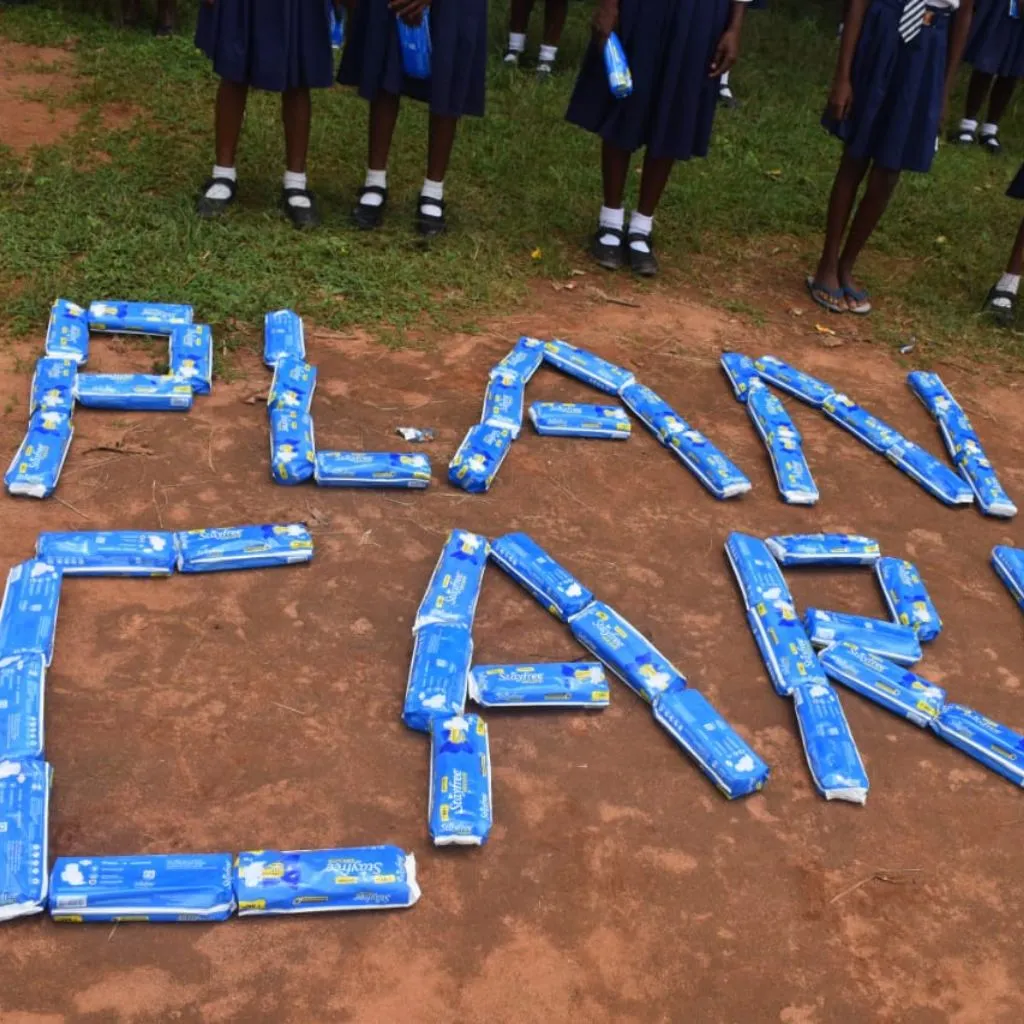
Meaningful change in menstrual health requires addressing the deep-rooted social taboos that stigmatize periods. PlanCare's community engagement initiatives bring together all stakeholders—from school administrators and parents to religious leaders and local government officials—to foster open dialogue about menstruation and its impact on girls' wellbeing and education.
Our workshops with mothers are particularly impactful, as studies show 70% of Indian mothers consider periods 'dirty.' By providing accurate information and challenging harmful beliefs, we transform mothers from potential perpetuators of stigma into advocates for their daughters' menstrual health and dignity.
Notably, our programs include men and boys, recognizing that gender-inclusive education is essential for creating truly supportive communities. When brothers, fathers, and male teachers understand menstruation, they become allies in ensuring girls have the resources, time, and privacy they need during their periods.
Support Menstrual Dignity for All
Your contribution creates lasting change for women and girls
Just ₹500 provides a girl with eco-friendly period products and essential menstrual health education for an entire year. Your support directly combats period poverty while building knowledge that empowers girls to manage their menstruation with dignity and confidence.
Every contribution to PlanCare's menstrual hygiene initiative creates ripple effects throughout communities—improving health outcomes, keeping girls in school, and gradually shifting social attitudes to normalize this natural bodily function experienced by half the population.
Join us in creating a world where menstruation is no longer a barrier to education, opportunity, or dignity. Together, we can ensure that every woman and girl in India has the knowledge, resources, and social support to experience her period without shame, discomfort, or limitation.
Transforming Lives Through Compassion ✨
Together, we've made a measurable impact in the lives of those in need.
1,000+
Girls Receiving Free Sanitary Products Annually
40%
Increase in School Attendance After Intervention
65%
Rise in Menstrual Health Knowledge
⭐ Real Stories, Real Impact ⭐
"Before PlanCare's program, I used cloth and often missed school during my period. Now I have proper pads and understand that menstruation is natural, not something to be ashamed of."
— Priya(15-year-old student, Sikkim)
"As a teacher, I've seen a dramatic improvement in girls' attendance since the Red Dot Campaign began. They're more confident, participate more in class, and no longer disappear for days each month."
— Sudha Kumari(Government School Teacher)
"The menstrual health workshops changed how I view my daughter's periods. I now understand how to support her properly instead of reinforcing harmful practices I learned from my own mother."
— Lakshmi Devi(Mother of program participant)
💬 Frequently Asked Questions
The Red Dot Campaign is PlanCare's comprehensive initiative addressing menstrual hygiene in rural India through education and free sanitary product distribution. Our volunteers visit schools to conduct workshops on menstrual health and provide girls with eco-friendly sanitary products, ensuring they can manage their periods with dignity and continue their education without interruption.
PlanCare takes a systematic approach to rural schools by first establishing relationships with school administrators and female teachers. Our trained volunteers travel to remote villages, sometimes covering difficult terrain to reach the most underserved areas. We conduct culturally-sensitive workshops tailored to each community's needs, establish menstrual hygiene corners with emergency supplies, and provide ongoing support to ensure sustainable impact.
Each girl in our program receives a sufficient supply of eco-friendly sanitary pads to last for an entire year. This eliminates the monthly financial burden on families and ensures consistent access to proper menstrual hygiene products, allowing girls to attend school regularly and participate in all activities.
Yes, we prioritize environmental sustainability in our selection of menstrual products. The sanitary pads we distribute are eco-friendly, reducing the environmental impact while still providing effective and comfortable protection for users. We also educate participants on proper disposal methods to minimize environmental harm.
We tackle menstrual taboos through comprehensive community engagement, conducting workshops not only with girls but also with mothers, fathers, teachers, and community leaders. By normalizing conversations about menstruation and providing accurate information, we gradually shift attitudes and create supportive environments where periods are understood as natural rather than shameful.
Absolutely! We believe that creating truly supportive environments requires educating everyone. Our programs include specific sessions for boys and men to help them understand menstruation, challenge harmful misconceptions, and learn how they can support the women and girls in their lives during menstruation.
You can support our work by donating (just ₹500 provides a girl with menstrual supplies for a year), volunteering your time and skills, sponsoring menstrual hygiene workshops in specific communities, or helping raise awareness about period poverty and menstrual health through your networks and social media.
Yes, part of our comprehensive approach includes advocating for and sometimes directly supporting the improvement of school sanitation facilities. We work with school administrators to ensure girls have access to private, clean spaces with proper disposal options for managing their menstruation with dignity while at school.
